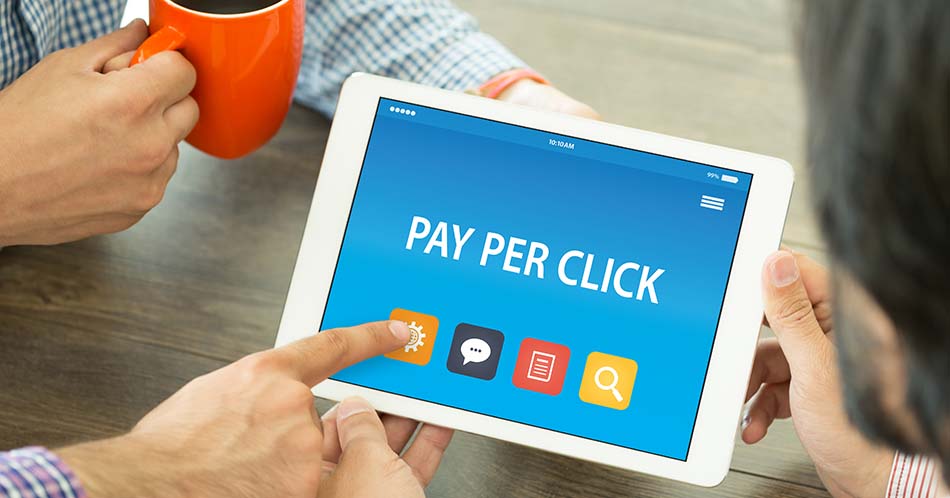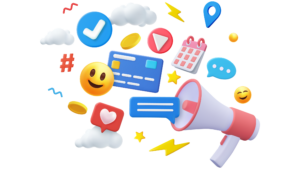PPC Advertising Is The Best & Fastest Way To Get Leads For Your Business
With more people at home in front of their screens, it’s a great opportunity for businesses to use PPC marketing to connect with their customers and gain a competitive advantage. Oh, and it is a great chance to save some money within your digital marketing budget.
During the global pandemic, many business owners are focusing on cutting costs anywhere they can. Its important though to keeping a sales-focused approach to saving your business and on the fast track to recovery — and pay per click (PPC) marketing is the cost-effective solution you need.
First, What is PPC?
This form of advertising is suitable for a wide range of businesses, and in many industries PPC ads are an essential part of the marketing budget. PPC stands for pay-per-click, a model of internet marketing in which PPC advertising agencies pay a fee each time one of their ads is clicked. Essentially, it’s a way of buying visits to your site, rather than attempting to “earn” those visits organically.
Search engine advertising is one of the most popular forms of PPC. It allows advertisers to bid for ad placement in a search engine’s sponsored links when someone searches on a keyword that is related to their business offering. For example, if we bid on the keyword “Dog Groomer,” an ad might show up in the very top spot on the Google results page.
Every time an ad is clicked, it sends a visitor to that company’s website, and they have to pay the search engine a small fee. PPC advertising agencies bid for the most valuable keywords and ad placements on platforms like Google, Bing and Facebook. Today, businesses create ads to create a direct line to their target audience online.
What Type of Businesses Can Benefit from PPC Advertising?
Virtually any business can benefit from implementing a strategic, well thought out Pay Per Click Advertising campaign. The key is to know your audience, identify the most relevant keywords, and develop a strategy that will convert leads into sales.
Let’s discuss some businesses that may benefit from PPC advertising.
High Ticket Products or Services
Niche Products
Lifetime Value Services
Benefits of PPC Advertising
People use search engines daily. With over 3.5 billion Google searches daily, there’s ample opportunity online for companies to reach their audiences. PPC allows you to reach potential customers as they’re searching for your product or service, so you don’t miss a single opportunity.
Get immediate, daily results. The moment you make a PPC campaign active, ads start appearing across your chosen platforms. With PPC advertising, you don’t have to waste time waiting for results. Your campaigns begin immediately, so you can spark success immediately as a result.
Boost website traffic. By linking your ads to relevant landing pages, you can boost traffic across your entire company website. Directing a customer to one page often prompts them to explore, too. Plus, these visitors will be people already searching for—and therefore interested in—your business, making them more likely leads for a sale.
Increase leads and sales. More website traffic means more leads, right? As we mentioned before, these visitors will already have an interest in your product or service. By using landing pages relevant to specific searches (rather than to your homepage), you can convert interested visitors into paying customers, thereby turning those leads into sales.
Some more benefits of PPC Advertising
Increase brand recognition. As customers see your ads online, they’ll become more acquainted with your brand. Your company will start to stick in their minds as a result. Using remarketing is another technique to increase brand recognition even after customers leave your website.
It’s measurable and trackable. PPC advertising gives you full access to your campaign results. Measure success based on the keyword, advertisement, or placements to determine which details customers best respond to. You can even A/B test ads and install conversion tracking on your website. That way, you can take note of what’s working—and what’s not.
You have full control. As you begin to recognize what’s working within your campaigns, you can make immediate changes as needed to boost results. That means control over messaging, where your ads are shown, how often those ads are displayed, and how much you pay daily or per click. Unlike radio, television, and print advertising, digital advertising allows you adjust messaging and targeting on the spot.
Targeting capabilities. Another benefit of PPC advertising is the ability to target customers based on location, keywords, behaviors, and interest. This allows you to pinpoint your target audience and organize them by specific segments for more precise messaging. You can even alter campaign settings by location, so you don’t have to compete for keywords that are more expensive in one area over another.
Keep up with competitors
Chances are your competitors are using PPC advertising too. If you’re not getting in on the action, you’re losing out on market share and sales. However, larger businesses with larger advertising budgets might be driving up the cost of relevant keywords.
With PPC advertising, you can target niche keywords within your industry that larger competitors are missing. As a result, you’re able to contest competitors without burning through your budget.
Launching A Campaign With A PPC Advertising Agency
Now that you understand the basics of PPC, you can leverage this knowledge in your next PPC campaign. When working with a PPC Advertising Agency, you can communicate with them and provide relevant information.
While PPC Advertising agencies are the expert in the platforms and using tools to analyze data, you’re the expert in your own business. For example, you may have insights into the common search terms used by your ideal customers. Sharing this valuable information with your agency can speed up the success of your PPC campaign.
Steps for PPC Advertising
Step 1: Setting Clear Objectives. Clear communications between your team and your agency is essential to ensuring both parties are on the same page about goals and outcomes
Step 2: Setting a Budget. What is the worth, in new revenue, to your business of each customer? This information helps you decide how much you’re willing to spend to acquire a new customer, and from there what monthly ad budget should be allocated. How many new leads do you need to meet your revenue goals? What is your team’s close rate for new business?
Step 3: Review the Strategy. Although you’re not the one managing the PPC ads, it is valuable for you to review the plans so you’re on track with the work they are doing. What keywords are being targeted for search engine ads? What targeting options are used for social ads?
Step 4: Decide on a KPI. One of the powerful strengths of PPC advertising is the amount of data available with which to analyze and improve campaign performance. The Key Performance Indicators tell us the campaign is performing well and meeting expectations.
Wrapping Up
PPC advertising can be expensive, but it is highly effective if done correctly. Working with a PPC advertising agency can save you time and a whole lot of money in the long run.
In this article, you’ve learned the different types of PPC advertising available, several ways you can benefit from it and best practices when launching a PPC campaign.
Every business is unique with different needs. Perhaps you may benefit from PPC advertising on search engines. Maybe you may benefit more from social ads. Or maybe, a combination of both will give you the best results.
PPC Advertising is the key
A professional PPC advertising agency can help you map out a strategy. If you’re already running PPC advertising, they can perform an audit on it and spot opportunities for improvement. They can point out holes in the campaign where you’re wasting ad spend and also untapped opportunities that are worth pursuing. We’re here, when you’re ready, to help you grow your business with PPC advertising.






